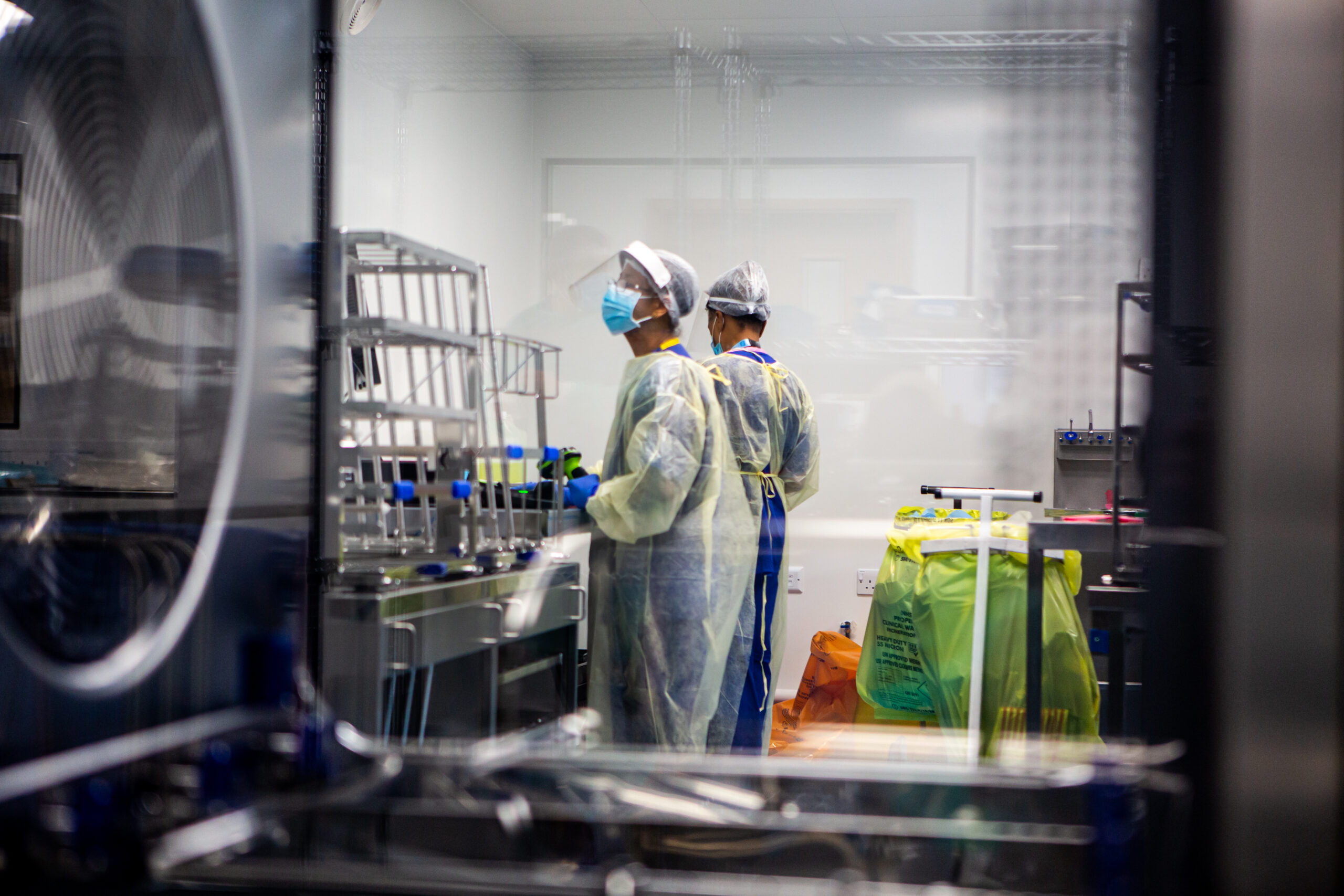Let’s be honest, whether it’s the life-altering three months earlier this year or the three weeks to come, any lockdown period is not without its challenges – particularly when the choices you make could have a profound impact on the UK’s front-line healthcare workers.
I know this first-hand because back in February this year, when we were encountering the early murmurs of a pandemic, I began researching the potential risks of ‘High Consequence Infectious Diseases’ (HCID) and it didn’t look pretty. At that particular moment in time, the UK had just four facilities in total designed to deal with such an outbreak; two in London, one in Manchester and one in Newcastle – with just two beds each.
Weeks later, a full lockdown ensued and concerns about the NHS’ capacity to cope and beds available, began to flood the media headlines. For the first time, I had major concerns we could come under immense pressure to close our own business, when ironically the facilities we provide, could make a significant difference to the very health workers which needed the help.
Like many professions, the majority of people who work in the Construction industry aren’t viewed as key workers and equally don’t have the option of picking up a laptop and working from home. Worse still, in the case of ModuleCo, if we elect to stop work, our ability to help the NHS Trusts would be rendered redundant at the worst possible time.
Truth be told, the next three days were spent on back-to-back on phone and Zoom calls with our supply chain, many of whom were ready to shut-up-shop until the pandemic had blown over. We asked, pled, negotiated, cagouled, encouraged and incentivised every last key worker and reached an agreement that together, we wouldn’t put the Trust at any risk.
That turned out to be easier said than done – After bolstering our social distancing policies, PPE equipment and extending (our already) stringent hygiene policies, we also realised pretty quickly that we’d barely scraped the surface of what was really needed. Providing a safer work environment was just the beginning.
Our intentions at the time may have been about preserving and protecting our NHS clients but it was far from a ‘straight-forward ask’. We weren’t simply requesting people to pitch-in a few extra hours – many of our in-house team (and our contractors) had vulnerable relatives whose health could be put at risk, simply as a by-product of us continuing to work.
I spoke individually with every single employee and contractor who needed to play an integral part in delivering the Trusts facility and quickly decided that traditional commercial acumen would have to take back seat for now. We agreed to offer every key skilled worker full-board accommodation, seven days a week and increased many people’s financial compensation in recognition of their personal commitment.
I’m proud to say that we kept our promise to Stoke Mandeville and didn’t lose a single day on the project. Our next job, however, is to begin to educate how we can further empower our NHS Trusts, as we move forward into the next phase of tackling this pandemic together.
Arguably, Modular Construction has earned its place at the table this year by creating the ‘Nightingale’ facilities for the NHS to deal with any capacity issues – The principle of providing additional resources was undoubtedly the right thing to do but the execution and choice of structure was unfortunately, remarkably short-sighted.
Millions of pounds of funding have been spent on ‘Temporary’ Modular buildings which are essentially ‘Single-use structures’ with all the quality and sustainability values of a discarded Glastonbury tent. Aside from the odd machine, they also carry zero asset or residual value and the likelihood of them being simply scrapped in the near future is remarkably high – This is as much a travesty, as it is completely avoidable.
At ModuleCo, our team has worked hard to change the perception of Modular Construction and modular hospital design by creating premium facilities which are designed to ‘Put the Patient’ first. We focus purely on creating an environment which supports successful and quicker recoveries – a clear and shared desire of both healthcare workers and patients.
A forward-thinking Modular hospital design is not a short-term strategy and is designed to reduce noise, vibration and provide a consistent temperature – all qualities synonymous with successful recoveries and equally, often more robust than even traditional construction.
As we enter into the second phase of the pandemic, it is our job to help NHS Trusts understand that they don’t have to compromise on the quality of their working conditions and if we’re to truly empowering our healthcare professionals, then it’s critical that together, we set the stage for the best possible patient experience.
I’m not sure I’ll ever forget the first three months that changed the face of our world. Some people say that saw it coming, others say that it was a surprise but I do know this much; when it comes to supporting and standing shoulder-to-shoulder with our NHS Trusts, for us, it has, and will continue to be, business as usual.
William Thornton, CEO of BRG Technologies
